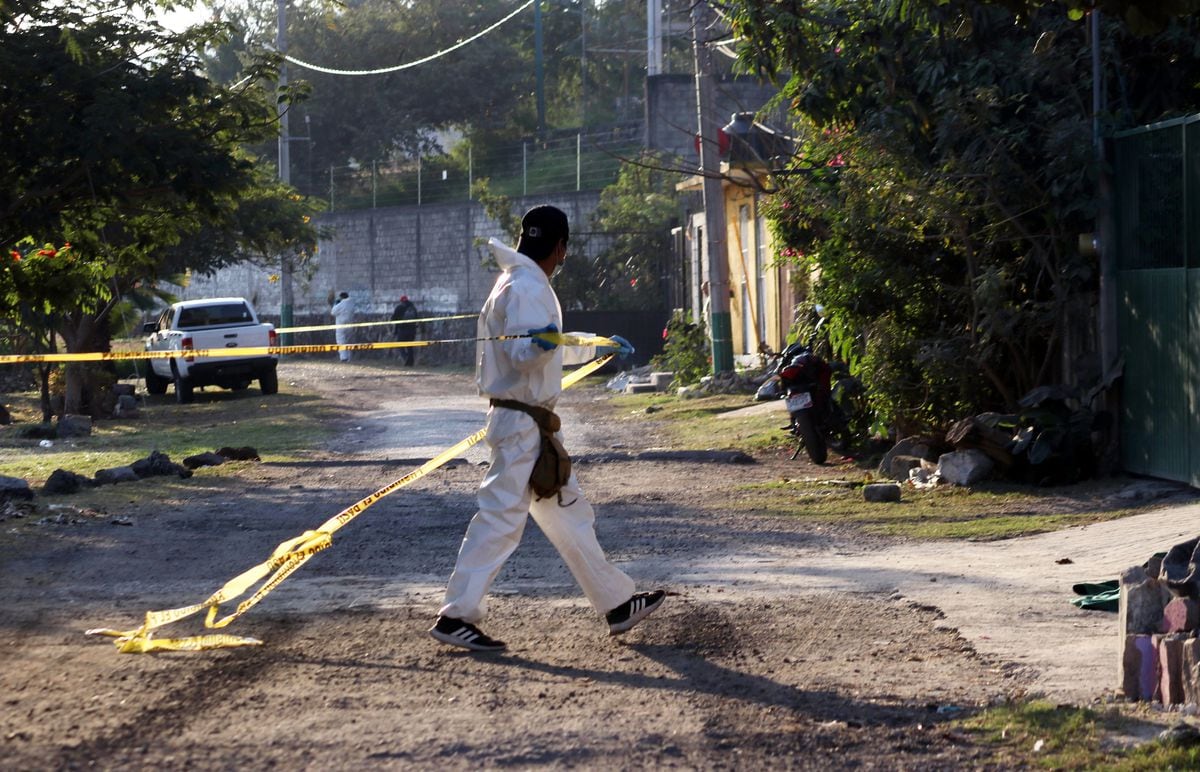Organized crime and violence are undermining the development and economic growth of Latin American and Caribbean countries.
Criminal organizations impact the daily lives of citizens and today are one of the main concerns of the population and political leaders.
It is a reality that, according to estimates by the Inter-American Development Bank (IDB), costs the region 3.5% of its annual Gross Domestic Product (GDP), and detracts from resources for urgent needs such as education and health.
Mark Shaw, director of the Global Initiative against Transnational Organized Crime, speaks during Seminar 4 of the Annual Meeting of the Assembly of Governors of the Inter-American Development Bank.CHELO CAMACHO
In this part of the world, the homicide rate is three times higher than the world average (18 versus 5.6 per 100,000 inhabitants) and 50% of homicides are associated with organized crime, compared to 24% in the rest of the world.
“Organized crime is a significant factor in all the violence in the region and that must be recognized.
The fact that it accounts for 50% of homicides and that between 20% and 50% of households in Latin America are afraid and feel that their safety is threatened, is something that should draw our attention," says Nathalie. Alvarado, coordinator of the IDB's citizen security and justice area.
Within the framework of the Annual Meeting of Governors of the multilateral organization that takes place this Wednesday in the Dominican city of Punta Cana, the expert warned that to combat this scourge it is crucial to understand it.
“It is a complex phenomenon, which involves a diversity of crimes and in which many risk factors also converge, some that are structural in the region, such as the lack of socioeconomic opportunities, low institutional weakness, including individual or community factors such as living in violence.
All of these are factors that have been identified as favoring organized crime,” Alvarado said.
It is a problem in which the IDB has invested 1.6 billion dollars in 15 countries since 2009 and in which there will now be a significant increase.
The portfolio of projects under discussion for Citizen Security and Justice for 2024 and 2025 totals close to 1 billion dollars.
The organization addresses these issues from two approaches: social prevention and strengthening the capacities of security and justice institutions, such as police, the judiciary, prosecutors' offices, and the penitentiary system.
Their initiatives have allowed, for example, a 26% reduction in robberies in public places in just three months in Paraná, Brazil, thanks to a surveillance intervention in crime hotspots, as well as a 5% increase in the resolution rates of judicial cases and a decrease in the cost of resolution of 75% in Costa Rica, due to an initiative to modernize the administration of justice.
On the other hand, the bank has deployed a series of initiatives that seek to address the causes that give rise to crime through the protection of the people most vulnerable to being victims or perpetrators of crimes and violence, such as young people, women, children, migrants and people of ethnic, sexual minorities or people with disabilities.
In the eastern region of Port of Spain in Trinidad and Tobago, where youth reintegration and behavior change programs were implemented, there was a 55% reduction in homicides and a 60% reduction in shootings.
Jamaica's positive parenting initiative helped reduce child abuse cases by 22% and school absenteeism by 33%.
And in Chile, a partnership between the prison system and the banking sector through microcredit, seed capital and job preparation, achieved economic inclusion and a 50% reduction in the recidivism of women in conflict with the law.
Large illicit corporations
But the problem of organized crime, which advances as large corporations dedicated to crime, continues to impact the population and development of countries.
Nathalie Alvarado warns about the advance of these groups whose influence manages to permeate politics through lobbying and corruption and transform, in the most critical cases, into criminal governance.
Understanding the logic with which these organizations operate, says the expert, is key to stopping their advance.
Under that perspective, she says, the IDB advances based on three objectives.
One has to do with understanding the context in which organized crime operates.
“Knowing how to listen to communities to understand which are the most at risk, which are co-opted by crime and which are the ecosystems of illicit economies and the markets in which their income and structure operate, are important mechanisms that They go beyond statistics,” explains Alvarado.
Another objective is to reduce the opportunities for these groups to grow, making the recruitment of young people more complex.
“We must increase the labor costs of organized crime, this precisely means investing in the education and job opportunities of our young people to create resilience in the face of recruitment.
But also increasing specialized intelligence, investigation and criminal prosecution capabilities will be fundamental in our institutions and, of course, increasing the mechanisms for forceful actions against money laundering,” says the expert.
The third goal is to create resilience against organized crime.
“It is necessary to create resilience in the public and private sectors by promoting integrity so that they are not co-opted by organized crime,” says Nathalie Alvarado.
And he adds that, along these lines, one of the strategies that are being tested today in Latin America, he says, is focused deterrence, that is, concentrating efforts on those crimes that cause the greatest impact such as extortion and homicides, as well as also promote non-violent conflict resolution.
“Mediation is essential to reduce levels of violence and find spaces for coexistence in our societies, and especially in communities,” she explained.

